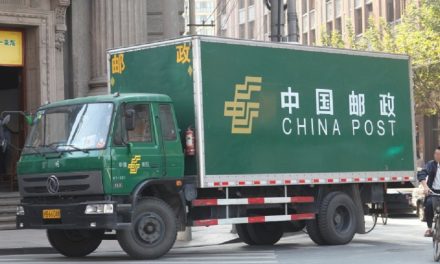
Ruthless post office stamps out small-time competitors (China)
A small private newspaper distributor has taken on China's giant
post office after being fined for encroaching on business
traditionally carried out by the monopoly. Yangguang Baoye accused the Zhangjiakou post office branch in Hebei
province of unlawful conduct and asked a court this week to throw
out a 20,000 yuan (HK$18,800) penalty the post office issued. It
lost, with the court ruling in favour of the post office. But with
an appeal coming up, it could mark the beginning of another long
drawn-out fight against the state giant. Wang Ke, a representative from Zhangjiakou post office, insisted it
was enforcing the law and the company was illegal. The case is attracting the attention of legal experts and the media.
In recent months, state monopolies have been increasingly
challenged. The fledgling Yangguang Baoye company has been at odds with the
local post office for two years because it distributes papers and
magazines, a business once the sole territory of the state-owned
post office. The local branch approached the company to demand an
end to what it called the illegal business. But the company defended
itself by citing anti-trust and unfair competition laws. Last September, the Hebei provincial Government issued a Postal
Administration Law ruling that newspaper and magazine delivery is
exclusively government business. According to insiders, this law is
the only local regulation of its kind in China and actually was
drafted by the local post office. Law specialists questioned the new regulation. National
Administration Academy professor Ying Songnian said it contradicted
the state's Post Law, which did not stipulate that the distribution
of newspapers and magazines fell under the exclusive business of the
postal department. Local government bodies therefore had no right to
hand out punishments, he told the Financial Daily. Yangguang Baoye continued to make deliveries, and business grew to
about three per cent of the local post office's volume. In an effort to stop the company, the post office told the company's
subscribers Yangguang was not a legal operation and warned them
against using its services. This seriously undermined the company's
business, manager Guo Dongsheng said. The local post office also refused to provide newspapers and
magazines to the company and accused it of illegal operations when
Mr Guo tried to get the publications from other branches. When nothing else seemed to work, the local post office imposed an
administrative penalty of 20,000 yuan in April, citing the Postal
Administration Law issued by Hebei province. Mr Guo decided to seek support from the court. Four weeks ahead of
the hearing, the local post office detained and interrogated a
company employee for about four hours, Mr Guo said. "In the past two years they have done other ugly things which would
seem incredible to observers. Their only goal is to force us out of
business," Mr Guo said. "We are a small company with only 150,000
yuan registered capital. I don't know how far Yangguang Baoye is
prepared to go." On the first day of the court hearing, Mr Guo and his company had
overwhelming support. They succeeded in convincing most people that
the local postal regulation was invalid under state law and the
penalty was therefore illegal. The post office, in its defence,
reiterated its need to run a profit-making business to cover the
cost of mail delivery in remote areas such as Xinjiang and Tibet. The court abruptly adjourned after the judge received a note from
two men in the public gallery, believed to be People's Court
officers. The next day the court ruled in favour of the post office but gave
no explanation why. Mr Guo said he was not surprised. Although he foresees a similar
result at the intermediate court, he will still appeal. Away from the courts, Mr Guo has won a lot of support from the
public and the media. He also has received donations from
supporters. In recent years, many companies, such as express delivery, have
entered the once-exclusive post office domain, taking a big chunk of
its profits. This year, China Post reiterated several times its ownership of
various services, cracking down on what it sees as trespassing on
its turf.
Copyright 2001 South China Morning Post Publishers Ltd.
Source: World Reporter (Trade Mark) – Asia Intelligence Wire.SOUTH CHINA MORNING POST, 10th August 2001












